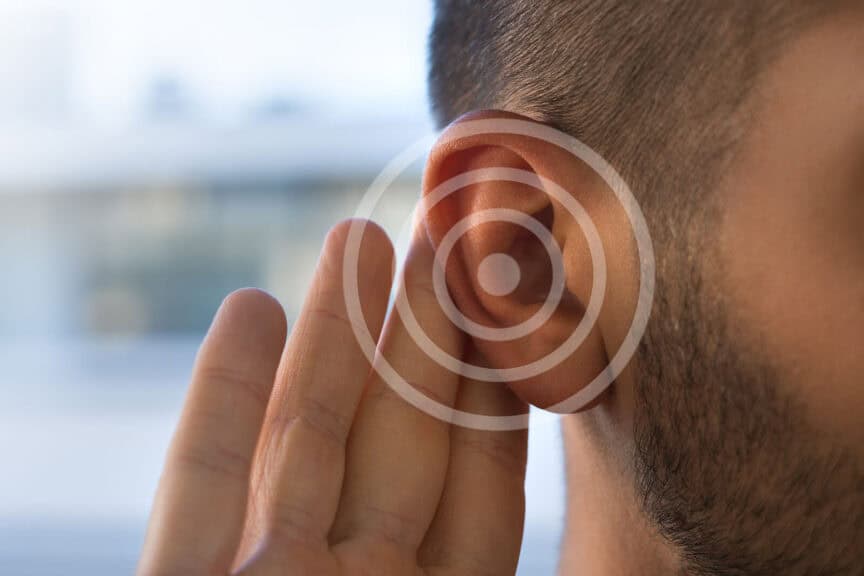When it comes to hearing challenges, two terms often come up: hearing loss and tinnitus. While they are closely related, they are distinct conditions with different causes, symptoms, and impacts. Both can affect daily life and overall well-being, but understanding the difference can lead to better awareness and proactive care.
Maintaining good hearing health is important, and knowing what each condition entails can encourage timely action. Regular hearing health exams are critical for detecting changes early and finding the right solutions.
Hearing Loss: What It Means
Hearing loss involves a reduction in the ability to hear sounds clearly. It can range from mild to profound and may affect one or both ears. This condition often occurs due to age-related changes, noise exposure, infections, or genetic factors. Those experiencing hearing loss may notice difficulty understanding conversations, especially in noisy environments.
Sounds may seem muffled, and there may be a need to increase the volume on devices. In some cases, this condition progresses gradually, making it hard to recognize right away. Scheduling a hearing health exam is the best step for identifying the type and severity of hearing loss. Depending on the results, solutions like hearing aids or medical treatments can significantly improve quality of life.
Tinnitus: The Persistent Ringing
Tinnitus is characterized by ringing, buzzing, hissing, or other sounds in the ears that are not caused by an external source. Unlike hearing loss, it does not affect the ability to hear external sounds but can interfere with concentration and sleep. This condition is often linked to underlying issues such as prolonged exposure to loud noise, certain medications, or ear injuries. Stress and anxiety can also make tinnitus symptoms more noticeable.
Although tinnitus is not a disease, it is a symptom of an underlying issue. Addressing the root cause can often reduce the intensity of the sounds. For those experiencing persistent symptoms, consulting a healthcare professional is important.
The Connection Between Hearing Loss and Tinnitus
Hearing loss and tinnitus are frequently interconnected. Many individuals with hearing loss also experience tinnitus, and the two conditions often share common causes, such as noise damage or age-related hearing changes. In cases where hearing loss is present, tinnitus can sometimes become more noticeable because the brain compensates for the reduced auditory input by generating phantom sounds.
Addressing hearing loss with hearing aids can often help manage tinnitus by restoring auditory stimulation. A hearing health exam can assess both conditions and determine the best approach for treatment. This dual focus can enhance overall hearing health and reduce the impact of tinnitus.
Impacts on Daily Life
Hearing loss can lead to frustration in communication, feelings of isolation, and difficulty participating in social events. Tinnitus, on the other hand, can create challenges with focus, relaxation, and sleep. The constant noise can lead to increased stress levels and fatigue.
Individuals may experience both conditions simultaneously, amplifying these difficulties. Seeking timely assistance from hearing health professionals can help alleviate these challenges. The right interventions can restore confidence and improve overall quality of life.
Treatment Options and Management
Hearing loss treatments often involve hearing aids, cochlear implants, or medical interventions, depending on the severity and cause. These devices amplify sound, making it easier to engage in conversations and enjoy everyday sounds. For tinnitus, management strategies focus on minimizing the perception of the noise.
Counseling and stress-reduction techniques are common approaches. Hearing aids with built-in features for managing tinnitus can provide dual benefits. Early detection through a hearing health exam can guide the choice of treatments, improving outcomes for both conditions.
Prioritizing Hearing Health
To maintain strong connections with others and enjoy life’s sounds, your hearing health should be taken seriously. Scheduling regular hearing health exams is important in identifying issues like hearing loss and tinnitus before they worsen.
Adopting protective measures, such as avoiding prolonged exposure to loud noises and using ear protection, can help prevent hearing damage. For those already experiencing symptoms, early intervention can make a significant difference. With the right support, those affected can lead fulfilling lives with greater clarity and comfort.

